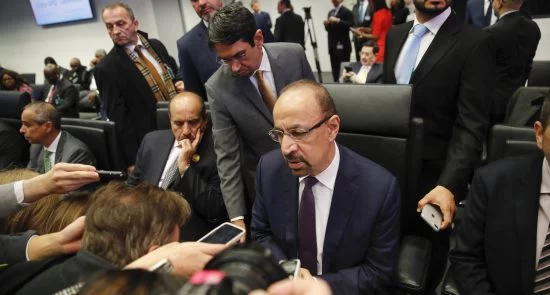Asia December 8, 2018
Short Link:Saudi Arabia Juggles Iran and U.S. Shale to Deliver OPEC Deal
Saudi Arabia’s energy minister emerged from days of heated OPEC talks joking that he wasn’t an easy man to be friends with.
Ariana News Agency- Yet, the deal Khalid Al-Falih hammered out to reduce production by 1.2 million barrels a day, which sent oil prices soaring on Friday, was based on Saudi Arabia shouldering the lion’s share of the cuts. It also relied, to an unprecedented extent, on Russia to broker an agreement between the Saudis and their archrivals, Iran, and acknowledged implicitly that there’s little the kingdom could do to hurt surging U.S. oil shale without causing itself pain.
“Saudi economic self-interest trumps Trump,’’ said Mike Rothman, president of Cornerstone Analytics Ltd., a veteran of three decades of OPEC meetings.
The outcome of the marathon talks in Vienna shows how OPEC was able to pull off a juggling act. Al-Falih’s dilemma: cut production and anger President Donald Trump, or let oil prices plunge and risk damage to a Saudi budget that requires oil prices above $70 a barrel in 2019.
“Low prices are actually not good for the U.S. economy,’’ Al-Falih said, a riposte to Trump’s repeated calls for OPEC to open the taps. “I know for a fact that oil and gas producers in the U.S. are probably breathing a sigh of relief that we’re providing some certainty and visibility for 2019.’’
Trump’s Tweet
On Twitter Wednesday, Trump urged OPEC not to restrict oil flows, but since then has not publicly addressed the market.
For Al-Falih, the willingness to cut production represented a shift. In a speech last year in Houston, he insisted that his country would not surrender market share to the U.S. The kingdom, he said, supported intervening in the market to address “short-term aberrations’’ and not “long-term structural imbalances.’’




